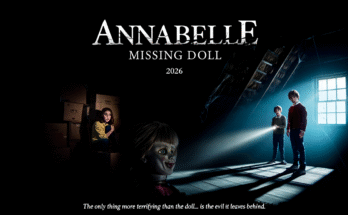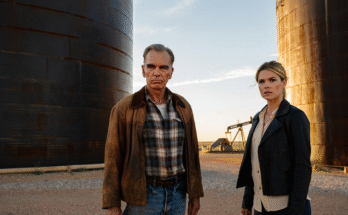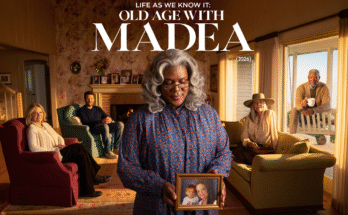⭐️⭐️⭐️⭐️ – Chilling, tragic, and quietly powerful.
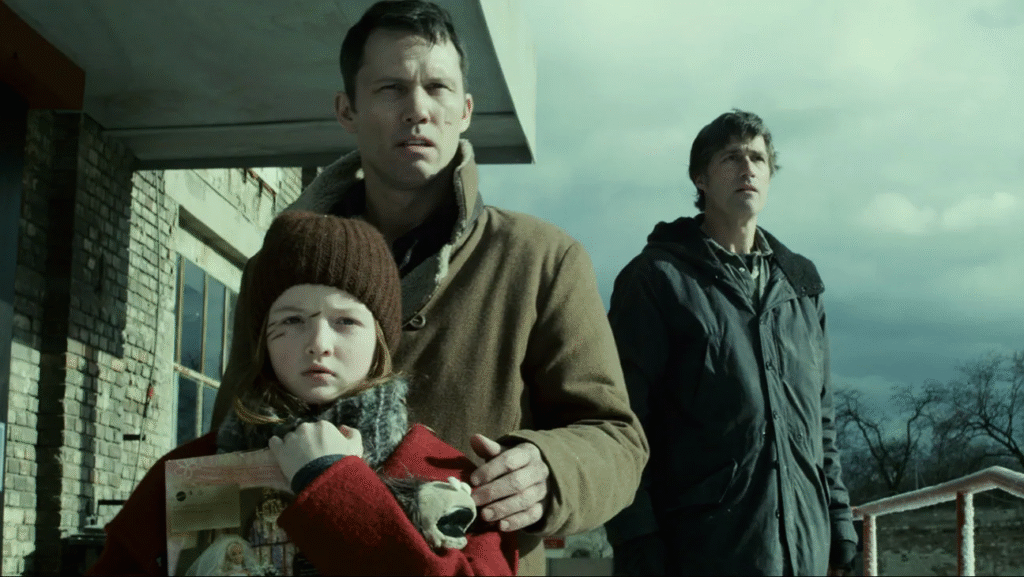
In Extinction (2015), director Miguel Ángel Vivas delivers a stark, atmospheric survival tale where the apocalypse is as much internal as it is external. Set in a world buried beneath endless snow and silence, the film trades explosions and spectacle for isolation, paranoia, and emotional scars that cut deeper than ice.
The story centers on Patrick (Matthew Fox) and Jack (Jeffrey Donovan), two men who once shared friendship but now coexist in bitter estrangement. Between them lies not only miles of emotional distance, but also the fragile hope embodied in Lu (Quinn McColgan), the young girl they raise in a frozen ghost town. Their uneasy peace is constantly threatened — not only by what lurks outside, but by the grief and betrayal festering within.

The apocalypse here is different: it isn’t fire and chaos, but frost and silence. Years after a viral outbreak, the infected return, mutated and far more intelligent than before. Their resurgence forces Patrick and Jack into confrontation — not just with the monsters beyond the barricades, but with each other.
What makes Extinction haunting isn’t only its creatures but its human fragility. The infected are terrifying — fast, ruthless, animalistic — yet the real terror lies in two broken men trying to reconcile loyalty, loss, and their shared responsibility for a child who represents both salvation and memory of everything lost.
Matthew Fox delivers a raw, haunted performance, his Patrick scarred by trauma yet desperate for redemption. Jeffrey Donovan grounds Jack in stoic pragmatism, his bitterness clashing against Patrick’s volatility. Together, they embody the heart of the film: fractured brotherhood under siege. Quinn McColgan shines as Lu, balancing innocence with resilience, a child forced to grow up in a world where love feels as endangered as humanity.
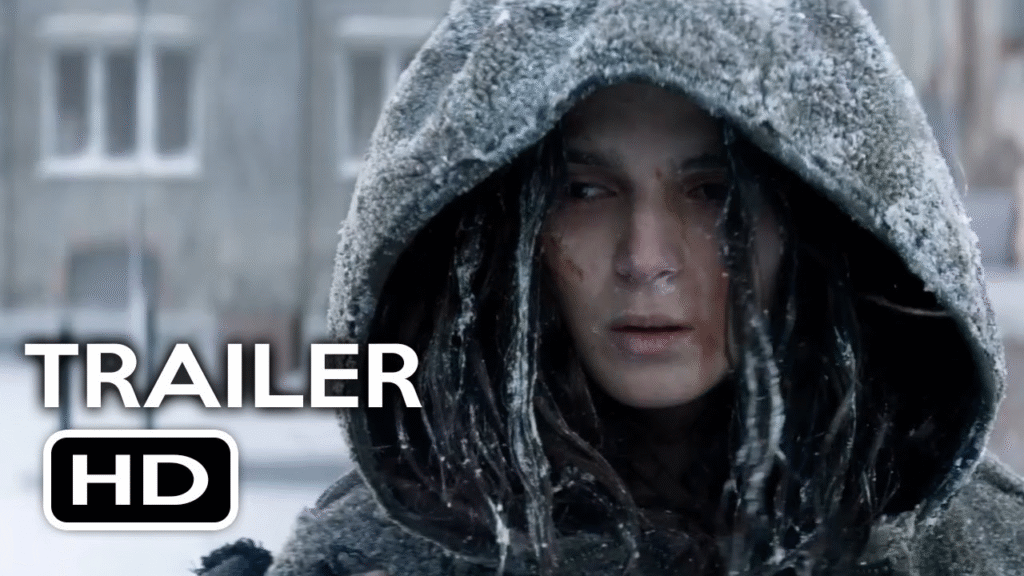
Cinematography leans into desolation — snowbound streets, frozen houses, and suffocating silences — a landscape that feels as lifeless as it is beautiful. The use of cold whites and muted grays mirrors the characters’ emotional distance, while bursts of violence pierce the stillness with shocking brutality.
Unlike many post-apocalyptic thrillers, Extinction is more slow-burn psychological drama than action blockbuster. Its pacing is deliberate, lingering on grief and guilt before erupting into tense, terrifying encounters with the infected. When violence comes, it’s sudden, chaotic, and horrifyingly final.
The film’s greatest strength lies in its duality: it’s about survival against monsters, yes, but also about forgiveness, redemption, and whether bonds shattered by betrayal can ever be mended. Its horror lies not only in mutated predators but in the ghosts of choices that never stop haunting.
By its end, Extinction feels less like a zombie movie and more like a tragedy set against the backdrop of apocalypse — a reminder that humanity’s greatest battles are waged in the heart.
⭐ Final Verdict: 8.0/10 — A frozen, haunting tale that blends horror and heartbreak. Quietly devastating, and far more human than expected.

